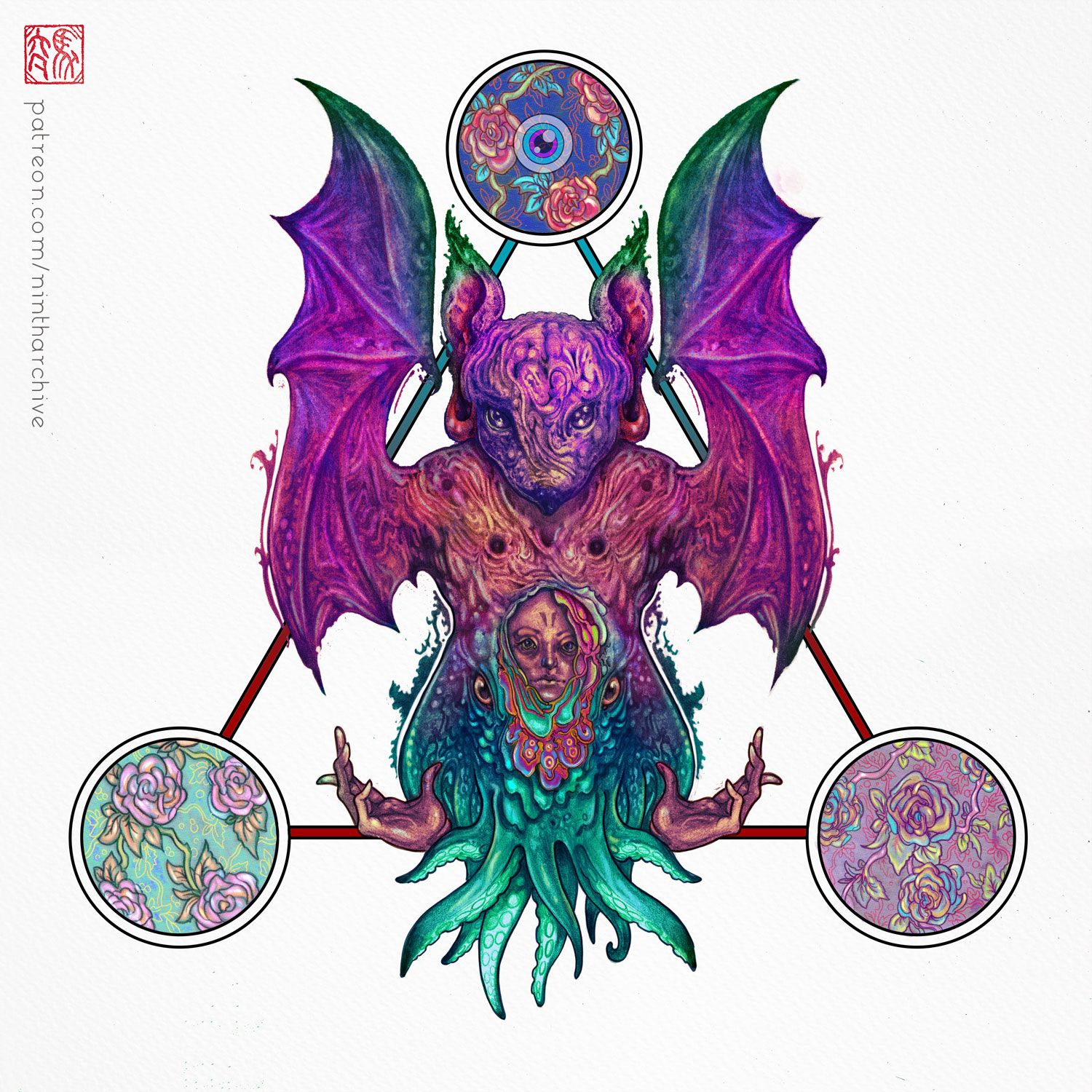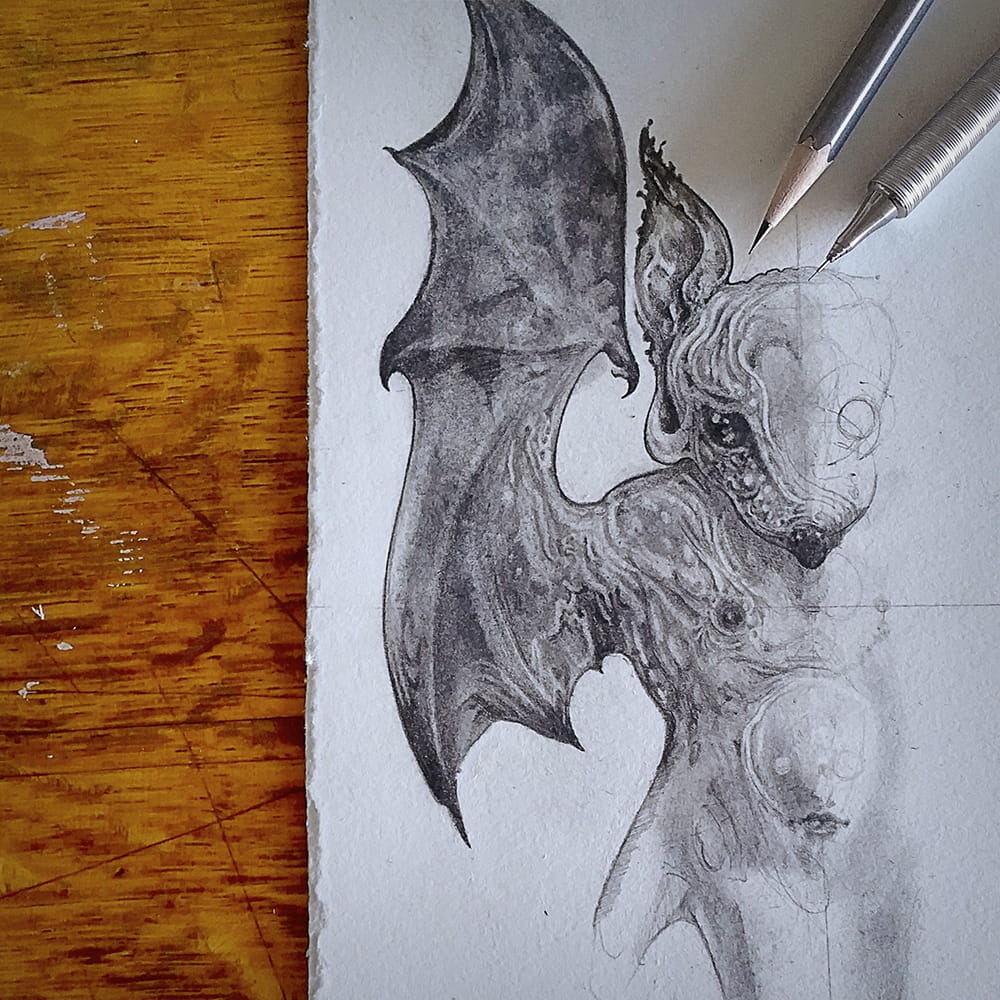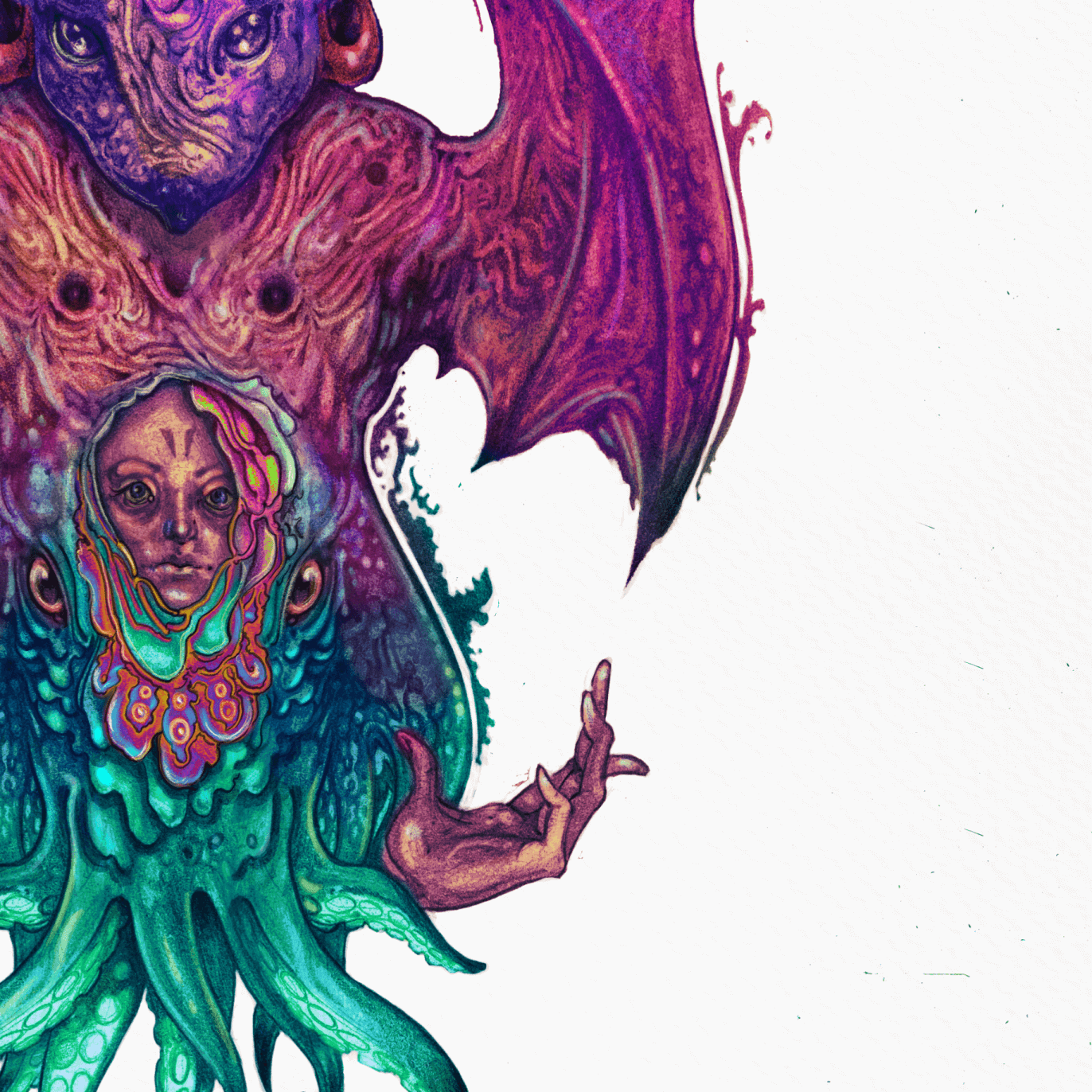Late afternoon is the hardest time. The time when the hum of civilization becomes overwhelming, when Swan’s brain resumes its natural state of floating distress, straining after a song remembered from a dream. It is always like this when she returns home from school. The hallways of her highrise stir with conversation. Brownouts again today and the elevators aren’t working. Throngs congregate in the stairwells where the vestiges of climate control still linger. The cement walls echo and echo with sound like ripples in quicksand. A child screams, its relatives surrounding it with comforting babble. Swan steps over a sleeping man in a dirty suit with a scraggly face. She grips the strap on her violin case tighter.
“You never smile,” says a voice behind her. Instinctively she stops and looks back, then immediately realizes this is a mistake. “Yeah, how come I never see you smiling?” the man says, raising himself off the ground. His unbuttoned shirt is stiff with yellow stains. Swan’s mouth becomes a grim line as she continues walking away, her footsteps merging with the noises of the echoing stairshaft. “Come on, you have beautiful teeth, show them off. For me, just one time. You’re so sad!” the man continues, shouting, but doesn’t follow her.
By the time she reaches the second storey, the cacophony is too much. She flees, sweating and on the verge of hyperventilation, out a fire escape and into the relative safety of an alley.
Swan takes a bus towards the outskirts, but she doesn’t really know where she is going. She’s tired, hungry, and her mind races. Her fingers uncontrollably tap the notes of Tan Dun’s violin concerto against her leg while her other hand holds the bus strap. Her pills are wearing off – probably they wore off hours ago. The bus lurches over potholes. Outside the window is a deserted construction site, the half-skinned skeleton of a building cutting a long void in the dry earth with its shadow. Swan’s hand jerks up to the pull cord and the bus disgorges her with a shuddering cough. This is the place. This is her place, now.
The unfinished walls conceal an immense excavation. Dry pipes and bent rebar jut from rock torn jagged by metal claws, opening back and down into shadow. It’s not quite an amphitheater, but surely it’s more acoustically appealing than the sound-deadening walls of her bedroom at home, Swan surmises. She descends the slope by a series of crude and haphazard ramps until the traffic sounds become an indiscernible rushing noise. The tranquility of her surroundings seems to agitate her mind further. How will she get home? What if Kali finds out where she’s been, this dangerous place of crimes and the unwanted? What if her parents find out? Did she forget to thank the bus driver? What if she runs into the creeper who asked her to smile again? How many hours were left until she had to be at school again? Did she leave her phone on the bus?
She opens her violin case, and before touching her instrument she retrieves two small, white pills from a crumpled bag shoved into the bottom corner. Swan swallows them without water. She counts to thirty in her head, motionless. The sky over the excavation is half orange, half dark blue. A soft wind flows from the shadows.
The bow is warm in her hand. She plays a long, sustained note, feels it reverberate the twilight. She shivers at the world-filling sound this motion of her arm has made. She shifts to the Méditation from Thaïs. Her violin isn’t in tune, but she doesn’t care, and lets the disharmonies bounce off the ragged rocks and interfere with each other, revealing a deeper harmony to her, and to the listening dark. As she reaches the end of the short piece, a tear hanging from the corner of her eye, she decides to play something that’s been rattling around in her head for the past week, some melody she must have invented. How did it go again? Swan’s fingers experiment on the black wood, her bow slants erratically—
—before her, weaving and zigzagging, membranous wings beating and beating as though its life depended on it, chitinous plates juicing with sweetness. Flashes of sound toll in the night, as of hammers striking—
—workers thrown against brick walls, screaming shouting clutching signs through bleeding fingers, crying “Cruelty!” “Inhumane!” “Liars!” “Three Worlds Lies!” “Never destroy minds!” as a man-shaped silhouette covered head-to-toe in riot armor the color of burnt-out bunkers swings its club, cracking her in the side of the head. A ringing pulse spreads from where the bone fractures, a deafening vibration seizes her ears, her teeth—
—show them off. For me,” says the man in the dirty suit in the stairwell. “Just one..”
“Fuck off,” she says.
“Oh, don’t be like that, baby. All I asked for was…”
“I said,” she hisses, pulling her whole body back like a coil of freezing steel, “fuck off!” She rushes forward, crushing—
—the exoskeleton between her teeth, savoring the chase, the kill, the sweet nectar that oozes as the cicada spasms in her jaws, the perfect arc of her formation that flies in the night. The fingers of the others guide her wings, the voices of the others fill her mind. The warmlife made of haste draw forth the unstaunched friend and revel in the following. Though her wide ears hear nothing—
—will ever make me smile at you!” she shouts at a slumped dirty suit while many hands pull back—
—her bow from her strings. The echoes take some time to subside until Swan hears nothing but the sound of a thousand featherless wings. Her eyes open to a fluttering darkness. The sky is black. A bat is perching on the end of her violin, just above her hand. Its skin seems to stir without moving, glow without illuminating. Yet its eyes are stern, wise, and kind, as she imagines her father’s would be. The bat extends a claw and plucks one of her strings so minutely she can hardly hear it. The fluttering around her alters instantaneously, as at the approach of a magnet to a clutter of iron dust.
The bat regards her, eyes softening further. She feels its weight shift and then it is gone, joined with the swarm around her that then lifts itself away into the night.
Related Readings
Secrets — Swan
High Mountain, Flowing Water — Shanghai


